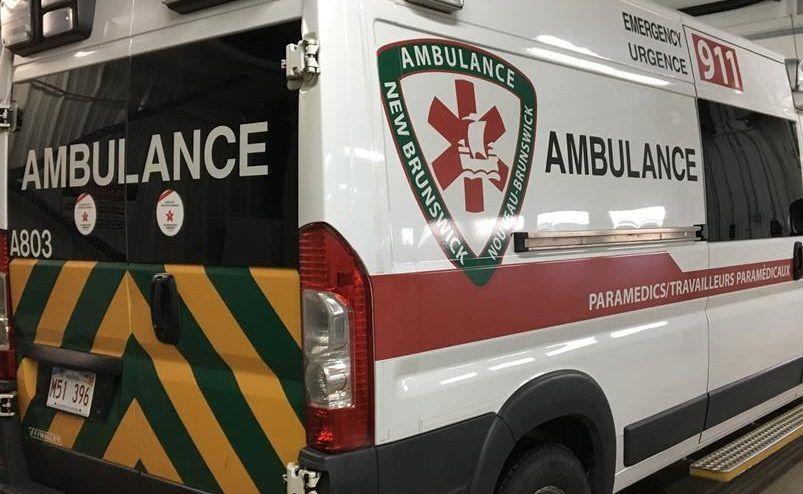The top civil servant in New Brunswick’s department of health says that they are working to improve the contract for ambulance services in the province.

“We recognize that the response times across the province are not equal, we are the first ones to recognize that,” said Deputy Minister of Health Gerald Richard.
“We have been directed, as the department of health, to make sure that we find solutions to those inequalities in the system.”
Medavie has provided ambulatory services in New Brunswick since 2007 and that contract was renewed in 2017. A report from Auditor General Kim Adair-MacPherson released last year revealed that the way in which the contract is structured allows the provider to collect performance incentives even as it consistently miss wait time benchmarks in rural areas.
The contract requires urban response times of nine minutes or less 90 per cent of the time. For rural areas, that metric is 22 minutes 90 per cent of the time.
But the way in which performance benchmarks are calculated allowed slower rural times to be averaged into more greatly populated areas where response times were better.
“Performance-based payments introduced a bias toward achieving high performance in areas o
f greater population density, to the detriment of rural or remote communities where 911 emergencies occur less frequently,” the report says.
Several MLAs, from both sides of the aisle, pushed Richard on the service gaps in rural communities.

Get weekly health news
“All across the province there are communities where the response time is below 90 per cent,” said Memramcook-Tantramar MLA Megan Mitton.
The report says 19 out of 67 communities fell below the 90 per cent benchmark for wait times, including Port Elgin, a community in Mitton’s riding that only met the benchmark 79 per cent of the time.
Miramichi-Bay du Vin MLA Jake Stewart also questioned the benchmarks as well, saying that the rate of response inside the benchmarks in is home community of Blackville is “substantially lower.”
The AG report bears that assessment out: the rate at which ambulances responded to Blackville within 22 minutes was 88 per cent of the time.
“Dynamic deployment is not working for Blackville,” Stewart said.
Dynamic deployment refers to attempts to ensure geographical coverage across the entire province, moving ambulances to different areas to fill in for those needed elsewhere.
According to the AG report, dynamic deployment often “left wide geographic areas uncovered.”
Stewart pushed for answers on how the incentive system works, asking Richard three times during committee who said that the government has directed the department to try and improve the outcomes of the contract.
“The incentive is really based on the total number of call received. I think urban areas, we can all agree, there is a higher number of calls than in a rural area,” Richard said.
“We know that contract needs to be improved and we need to make sure that we offer the best services across the board, across the province, no matter where you are.
“We’ve been directed by government to look at that and that’s what we’re doing.”
Ambulance New Brunswick board chair Rene Boudreau and CEO Richard Losier appeared to take questions in the afternoon. Boudreau said that the ambulance provider is currently measuring up fine to the contract they have and an adjustment in outcomes requires an adjustment in priorities.

“The goals set out in the contract are to get to as many people in New Brunswick, as quickly as possible irrespective of urban and rural,” Boudreau said.
“It’s incumbent on ANB in collaboration with government to change those objectives in the contract if we want a different outcome.”
Boudreau, as chairman of the board, is a government representative. Medavie’s representative at committee was Losier, who didn’t answer any questions about the contract, but Boudreau suggested “both sides” are willing to look at changes.








Comments
Want to discuss? Please read our Commenting Policy first.